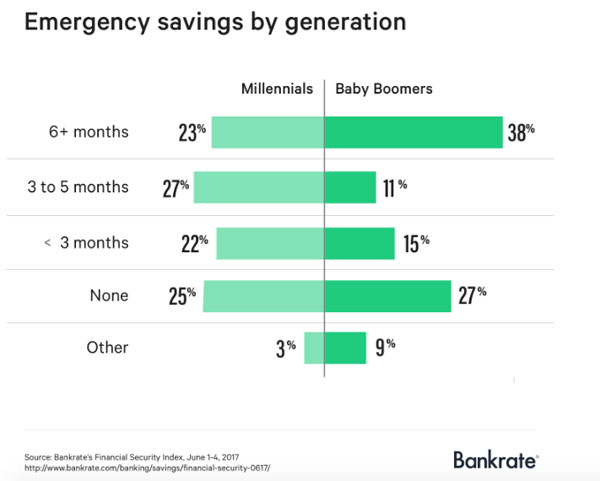Do you have a credit card debt? How healthy is your savings account? Which account boasts the biggest number?
Nearly a quarter of US adults say they have no savings to tide them over in an emergency situation like an unexpected layoff, an expensive trip to the doctors or other big-ticket expenses, according to a new survey released by US financial services company Bankrate.
This is despite experts' advice that people should aim to build a financial cushion to cover three to six months' worth of spending.
Surprisingly, the New York-based portal says the survey results are actually good news as the number of people with zero savings is at its lowest level since polling began in 2011.
The June survey also reveals that 31 percent of Americans have what Bankrate considers an adequate savings cushion. While that means that about two-thirds of the country still isn't saving enough money, the number of good savers is at its highest level since the survey began seven years ago, up 9 percent from 2015.
Generally, Americans' saving habits are getting better but are still far from ideal.
"Americans are putting money in savings," Bankrate analyst Greg McBride said. "Yet, we're still not out of the woods. Everyone should strive to have at least six months' expenses socked away for the unexpected, but it's encouraging to see progress being made."
|
|
|
Financial services company Bankrate releases its data about Americans' saving habits. [Photo/Bankrate]
|
Bankrate broke down its survey results to compare the savings habits of baby boomers and millennials.
Of the 1,003 adults polled, 27 percent of the young millennials, aged 18 to 26, said they had three to five months' of money saved, compared to only 11 percent of baby boomers who'd saved the equivalent.
Young millennials "are trying to be savvier with their money" after seeing their parents struggle during the 2008 economic recession, a consumer and money saving expert Andrea Woroch said.
Compared with Americans, Chinese people seem much thriftier.
According to data published by the International Monetary Fund in 2013, China ranked third in the world's top-saving countries, with estimated $4.6 trillion in savings, while the United States, whose economy is nearly double the size of China's, saves around $2.8 trillion, 17 percent of its GDP.
China's savings may come as a surprise to outsiders, particularly the Americans, Orville Schell, director of the center on China-US Relations in New York, told Forbes.
Chinese usually save to pay out of their own pocket for retirement, education and healthcare. Despite the booming consumerism in China today, conservative spending habits are deeply ingrained in their culture, he added.








